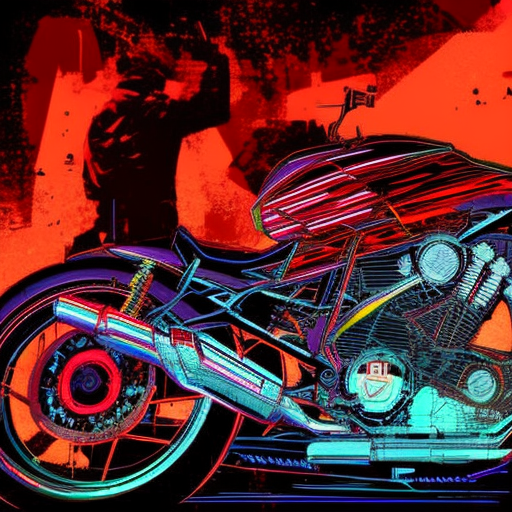Summary:
Zen and the Art of Motorcycle Maintenance: An Inquiry Into Values by Robert M. Pirsig is a philosophical novel that explores the concept of quality and the pursuit of a meaningful life. The story follows a father and son as they embark on a cross-country motorcycle trip, delving into topics such as philosophy, technology, and the nature of reality. Through the protagonist’s journey of self-discovery, the book challenges traditional notions of rationality and offers insights into the importance of embracing both the artistic and technical aspects of life.
The book is divided into three parts: the narrator’s motorcycle trip with his son, his philosophical musings, and his personal experiences with mental illness. These three elements intertwine to create a thought-provoking narrative that encourages readers to question their own values and beliefs.
The Motorcycle Trip:
The story begins with the narrator, who remains unnamed throughout the book, embarking on a motorcycle trip with his young son, Chris. As they travel through the American Midwest, the narrator reflects on his past experiences and his troubled relationship with his former self, whom he refers to as Phaedrus. The motorcycle trip serves as a metaphorical journey towards self-discovery and the exploration of the concept of quality.
The Inquiry Into Values:
Interwoven with the motorcycle trip narrative are the narrator’s philosophical musings, which form the core of the book. He delves into the concept of quality, arguing that it is not merely subjective but rather an objective reality that can be understood through a combination of rationality and intuition. The narrator challenges the traditional divide between the arts and sciences, suggesting that both are essential for a holistic understanding of the world.
The book also explores the tension between the romantic and classical views of reality. The romantic perspective emphasizes subjective experience and intuition, while the classical perspective focuses on objective analysis and reason. The narrator argues for a synthesis of these two perspectives, suggesting that a balanced approach leads to a deeper understanding of reality and a more fulfilling life.
Mental Illness and Society:
In addition to the motorcycle trip and philosophical inquiry, the book delves into the narrator’s personal experiences with mental illness. He recounts his time in a mental institution and reflects on the societal stigma surrounding mental health. Through his experiences, the narrator highlights the importance of empathy and understanding towards those struggling with mental illness.
Throughout the book, Pirsig weaves together these various threads to create a narrative that challenges readers to reevaluate their own values and beliefs. By embracing both the artistic and technical aspects of life, the narrator suggests that individuals can find a deeper sense of purpose and meaning.
Key Takeaways:
- Quality is not merely subjective but an objective reality that can be understood through a combination of rationality and intuition.
- A balanced approach that embraces both the arts and sciences leads to a deeper understanding of reality and a more fulfilling life.
- Society should strive to be more empathetic and understanding towards those struggling with mental illness.
“The place to improve the world is first in one’s own heart and head and hands.” – Robert M. Pirsig
Zen and the Art of Motorcycle Maintenance challenges readers to question their values, explore the nature of reality, and seek a deeper understanding of quality. By blending philosophy, personal narrative, and the pursuit of self-discovery, Pirsig invites readers on a transformative journey that encourages a more holistic approach to life.












